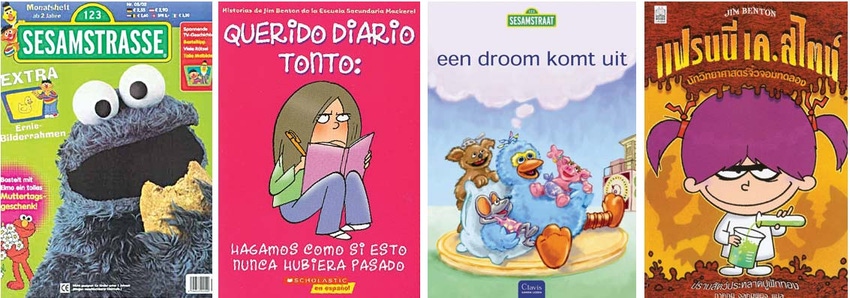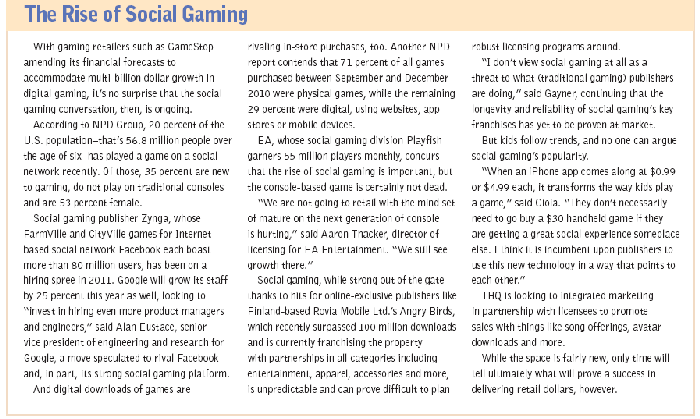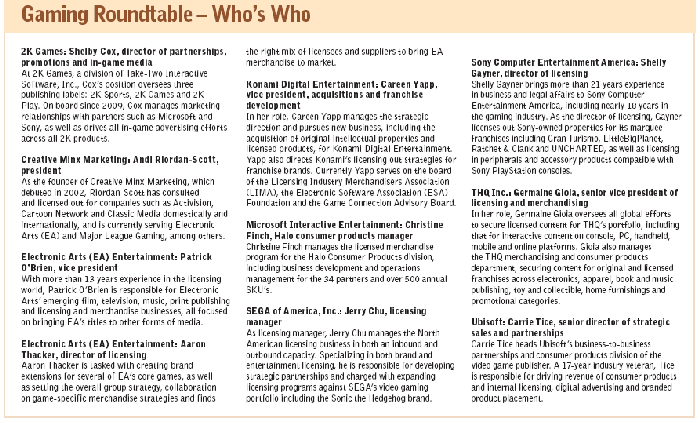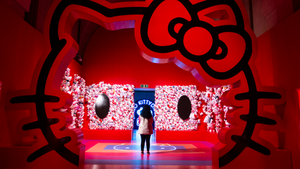The latest and greatest players in the video gaming industry converged for License! Global's first "Gaming Roundtable: The Future of Gaming and Brand Licensing," held in partnership with the Licensing Internationa
April 6, 2018

The latest and greatest players in the video gaming industry converged for License! Global's first "Gaming Roundtable: The Future of Gaming and Brand Licensing," held in partnership with the Licensing International Expo, March 8.
Directors from all of the major gaming publishers–Electronic Arts, SEGA, Konami, Microsoft/Halo, 2K Games, Ubisoft, THQ and Sony–were brought together to discuss the booming emerging category, which brings in more than $5 billion in retail sales annually. 
Licensing in Gaming–Where is it Today?
The general consensus was fairly uniform across the participant panel: the business of licensing within gaming categories is fairly new and the opportunities are still evolving, but the potential for profit is enormous. For example, in January, a traditionally weak sales month, publishers generated $235.1 million in gaming accessory sales alone, with sales across the industry (including hardware and software) totaling more than $1 billion, according to statistics released by market research firm NPD Group. 
"We're in a period where we're figuring out what is real evangelizing and not a waste of time and what has potential for real revenue," said Germaine Gioia, senior vice president of licensing and merchandising for THQ. "I think it's time to start evolving to a place where advertising partners can say that the gaming industry can bring audiences to their space."
Gioia said that the constant changes in and evolutions of the video game industry–including the emergence of social and digital gaming, a niche that GameStop expects will accrue $1.5 billion in digital revenues for the retailer by 2014–constantly forces a close evaluation of properties and consumer products. And for THQ and Sony, the outlook for gaming consumer products is seen as one that could rival major movie studios.
"The message to retail is that these brands are just as fan-friendly and popular as the movie brands," said Shelly Gayner, director of licensing for Sony Computer Entertainment America.
Recently Rockstar Games, a subsidiary of Take-Two Interactive, premiered its cinematic L.A. Noire video game at the 2011 Tribeca Film Festival. This was the first time a video game had been premiered among films.
"I think the opportunity (video game publishers) have is this great direct connection with the consumer, and if you put that up against an entertainment property it's a great story to tell," said Shelby Cox, director of partnerships, promotions and in-game media for 2K Games, also a division of Take-Two Interactive. 
And licensees are taking notice.
"A lot of these licensees are taking film licenses in addition to video game (licenses)," said Andi Riordan-Scott, president of Creative Minx Marketing and licensing agent for video game publishers including Electronic Arts Entertainment. "The best selling points you have are that in gaming, you have certain core franchises that come out every 24 months, but you also have expansion packs, a map or publishing coming out regularly–it's continued impressions back in front of the customer." 
EA Entertainment does see the potential to rival studios, but consents that it may be some time before studio revenues are realized to gaming executives. 
"I don't believe we're as big and as great as movie properties, otherwise we'd be basking in the many, many, many millions of licensing revenue, which we are not," said Patrick O'Brien, vice president of EA Entertainment. "But I do think we have many strong and powerful brands, especially ones that have been sequeling for awhile, and there are different ways to reach people. And when we do, we have a lot of impact."
EA Entertainment has already produced three feature-length animated films with its partner Film Roman for properties such as Dead Space: Aftermath, with three more animated DVDs in development and production. Other arms of its consumer products division are supporting its franchise games in categories such as comics and novelizations for multiple properties, and recently launched an EA Comics imprint with IDW.
But the customer still needs to be reminded that the property is on the shelf. Constant impressions are necessary, and the core game is the driving force for product extensions.
"In the gaming industry, we're only as powerful as our last IP," said Carrie Tice, senior director of sales and strategic partnerships for Ubisoft.
Companies such as Ubisoft are still feeling out their strengths as product launches and manufacturing methods are tested and re-tested at market. Properties such as Assassin's Creed: Brotherhood and Raving Rabbids proved successful for Ubisoft brand extensions and utilized a direct manufacturing model which included sell-ins to major retailers such as Target that doubled sales, Tice said. Moving forward, however, Ubisoft plans to re-evaluate that model.
Licensors Look Beyond the U.S.
Breaking the international market is a goal for each gaming company to strategically pursue this year and in the years to come, members of the roundtable confirmed. 

SEGA, which holds more than 60 licenses in North America (up from five in 2007) in all major categories and channels of distribution for its Sonic the Hedgehog properties, is beginning to heavily leverage its Latin American business. Although team members are in place in Europe, Japan, Australia and Asia, the U.S. and Latin America set the pace for brand extension programs, said Jerry Chu, licensing manager for SEGA of America. Currently SEGA is bringing Sonic to Guatemala, working with Alimentos S.A. for food and beverage, strengthening a toy program with increased distribution and marketing in Central and South America and brokering deals in new categories throughout South America.
"Latin America has really become an interesting market for us from a character brand perspective," said Chu. "Consumers down there are finding Sonic with zero game releases (in Latin America) and no marketing. They really recognize the character. It's turning into something that can look like a full-fledged program soon."
"Latin America is our new cash cow," said Gayner. "The (merchandise) is there, retailers are carrying it and consumers are buying it. Piracy certainly affects all of our business down there, without a doubt. But if you're just looking at the microcosm of licensing, it strangely helps us because that is how the characters are known."
Worldwide, Sony's PlayStation 3 console is performing well, with 43.4 million active units, according to a report by Strategy Analytics, making it the top selling gaming console. Sales for 2011 are expected to reach 15.7 million units, in comparison to forecasts of 13.7 million units to move for Microsoft's Xbox 360, whose sales out pace in the U.S. The figures only bolster licensing programs. 

EA, Konami and Ubisoft each are making strong moves into the international market as well, and are looking to retailers in Europe, Asia and Latin America to build programs. EA and Creative Minx recently launched programs for Dead Space and Dragon Age II at the U.K.'s Forbidden Planet International across 12 categories with an average 60 percent sell-through.
Ubisoft is finding footing in Europe in particular, enjoying a close relationship with the EMEA. Its Rabbids franchise proved successful for the company, and will now be represented by Copyright Promotions Licensing Group (CPLG), said Tice.
Here in the U.S., major retailers such as Target and Walmart are just beginning to take new licenses in more categories, said Riordan-Scott, but in a shorter window of time, yet they remain cautious.
But the retailer where each licensing program enjoys success is Hot Topic, it seems. Hot Topic caters to young male and female customers, typically between the ages of 12 and 22–a key gaming demographic. With more than 650 brick and mortars in malls across 50 U.S. states, Puerto Rico and Canada (in addition to its 151 Torrid stores and online presence), Hot Topic is posting gains for its licensed merchandise, generating $212.4 million in sales for the fourth quarter of 2010.
"Hot Topic has been really supportive of the video game–not the actual game, but everything that surrounds it," said Gioia.
SEGA is also finding success there, as does Sony, who calls Hot Topic a "cooperative retailer." Sony successfully moved product related to its God of War III launch in 2010 there, gaining favorable exposure at retail, said Gayner.
Other profitable retailers, according to roundtable participants, include Kohl's, Macy's for Ubisoft's Just Dance series (which ranked number two in game sales across all merchandisers for December 2010), Spencer's Gifts and Urban Outfitters.
Is the Future in Online Retail?
As retail continues to evolve online, video game consumer products are naturally easing into the sales model, perhaps none so well as Microsoft Interactive Entertainment with its Halo franchise.
Microsoft has developed a 365-day program that utilizes a primary website, updated daily with game-related news, content and interactive communities, and offers an online store for property extensions.
"We strategically look at what we can continually add to the Halo universe between launches," said Christine Finch, Halo consumer products manager for Microsoft Interactive Entertainment.
The franchise boasts a licensed products program in partnership with more than 24 licensees that includes unit sales such as 7.5 million action figures moved; 6.5 million Halo Mega Bloks produced; 2 million ActionClix figures sold; 7.5 million novels, graphic novels, art books and strategy guides sold; and more than $4 million in retail sales for Halo: Reach apparel and accessories in 2010. Taken together, the franchise has surpassed $2 billion in sales.
EA also finds much of its retail sales online rather than in traditional brick and mortars, thus enabling higher royalty rates and stronger, more useful communication with the consumer, said O'Brien. Its online store was recently ranked number four among top five frontline digital retailers by NPD Group's 2010 report "PC Games Digital Downloads: Analyst Report."
Konami also sold much of its merchandise, including the traditional categories of apparel and accessories for classic properties such as Castlevania, online with success, said Careen Yap, vice president of acquisitions and franchise development for the publisher.
"I think traditional retailers are understanding of where retail is going and they are evolving," said Gayner.
But it's tough to gauge where the future lies for the industry's licensing business. Predictions are mixed: Yap and Cox foresees a change in the delivery methods of games and an increase in print-on-demand, while Sony says transmedia will continue to grow.
"Ultimately, every single one of us as a publisher is working on an entertainment deal, bringing the content to the masses and wrapping it all together," said Gayner.
You May Also Like






